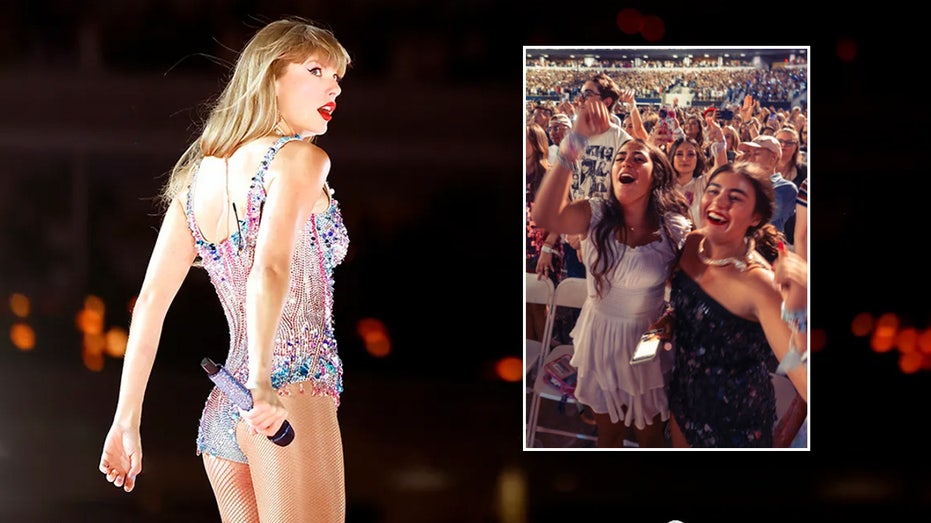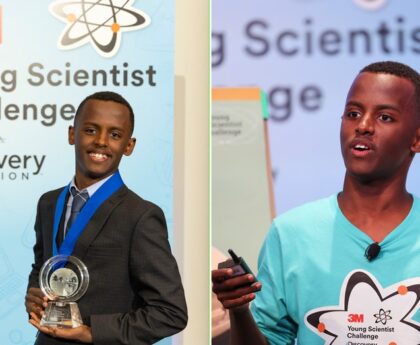Many Swifties are experiencing a post-concert “blank space.”
Fans of international pop star Taylor Swift have reported a lack of memory after attending Eras Tour concerts — with some saying they’re even forgetting chunks of her performance.
Experts at Hackensack Meridian Health in New Jersey researched why concertgoers are experiencing blackouts after their big night out.
TAYLOR SWIFT SUPERFAN SPENT NEARLY $9K TO ATTEND 12 ERAS TOUR CONCERTS
Dr. Nathan Carroll, associate chief resident psychiatrist at Hackensack Meridian Jersey Shore University Medical Center, linked the memory loss after concerts to a neurological condition called transient global amnesia (TGA).
TGA is a “rare phenomenon impacting memory,” the researcher told Fox News Digital.
“Individuals who experience TGA will attend an event (like a concert, wedding or festival) and later report undeniable gaps in their memory,” he said.
This type of memory loss is different from normal forgetfulness, Carroll said.
ASPARTAME COULD CAUSE MEMORY AND LEARNING DEFICITS IN FUTURE GENERATIONS, A NEW STUDY SUGGESTS
“For example, during the event, it may look like you’re acting normally and answering questions — but later, you may not recall some of your conversations,” he said.
“Unlike other amnesias, memory loss is very limited, only lasting about a day, and people don’t forget [autobiographical] information.”
TGA can develop due to elevated blood pressure, strenuous physical activity and emotional excitement, which Carroll said are all “theorized to temporarily impair the functioning of the memory center of our brain, the hippocampus.”
THE TAYLOR SWIFT OBSESSION: PSYCHOLOGIST WEIGHS IN ON WHY FANS WORSHIP CELEBRITIES
“What’s interesting is that the concertgoers are only recognizing the memory loss post-event,” he said.
“They actually experience TGA during the event but don’t realize it at the time.”
The researchers’ findings suggest that certain risk factors may make Eras Tour concertgoers more susceptible to TGA.
These include lack of sleep, poor hydration, anticipation and pre-existing anxiety or depression, Carroll said.
Environmental risk factors include the intensity of the concert, engagement with the music, crowd-induced excitement and a sense of surprise throughout the event.
TAYLOR SWIFT QUIZ! HOW WELL DO YOU KNOW THE FAMOUS POP MUSICIAN?
Fellow researcher Dr. Soha Salman, attending psychiatrist at Hackensack Jersey Shore University Medical Center, said Taylor Swift isn’t the only pop star who’s causing this impact.
“Because there’s been such an outpouring of reports of this amnesia from the concert, it seems as though it’s specific to Taylor Swift, when that’s not actually the case,” she told Fox News Digital.
“There are similar reports from concert-goers who attended Beyoncé’s ‘Renaissance’ tour this summer, as well as reports from Harry Styles’ concerts,” Salman said.
TAYLOR SWIFT ANNOUNCES RELEASE DATE FOR RE-RECORDED ALBUM ‘1989 (TAYLOR’S VERSION)’
“Thanks to social media, there’s constant communication and sharing of experiences online, which allows us to notice patterns that we may have otherwise missed.”
But, Salman suggested, it’s understandable that so many Swifties experience this overwhelming phenomenon, as many attendees undergo intense nostalgia due to the Eras Tour’s throwback structure.
“The emotional connection to her music may be one of the reasons fans are experiencing this memory loss,” she said.
Salman also mentioned that a sense of bonding at Taylor Swift’s concerts releases adrenaline and cortisol — both hormones involved in the brain’s memory-making process.
“The connection between heightened emotional states and the release of these hormones is one of the things we are researching further,” she said.
This type of amnesia doesn’t only happen after a concert, but can occur after any “physically exerting or emotionally arousing event,” said Salman.
TAYLOR SWIFT’S EXES: BABY NAMES INSPIRED BY THE SINGER’S FORMER FLAMES REVEALED
“We did find in our research that there were reports of people experiencing similar amnesia after attending sporting events and weddings,” the doctor said.
There are no lingering effects or neurological deficits with the condition, Carroll added, which “helps distinguish TGA from more serious health issues that can cause memory loss, such as a stroke.”
“Still, it is best to have a doctor check you out with any notable memory loss,” he said.
A person experiencing TGA will show no signs of distress and will “act, talk and behave normally,” Carroll noted.
It is only “a short time later, when questioned about the event, [that] the person with TGA realizes they have memory gaps,” he said.
“These memory gaps typically go away in about a day.”
CLICK HERE TO SIGN UP FOR OUR LIFESTYLE NEWSLETTER
TGA is much more common in adults than younger people – typically older than the average age of a “Swiftie,” according to Carroll.
A clinical diagnosis is made based on an exam and symptom screening, he said, though some imaging, such as an MRI, can help confirm the diagnosis if warranted.
While there are no specific methods of preventing TGA, Salman recommended getting enough sleep and staying hydrated before a big event.
“Another proposed mechanism of TGA is elevated blood pressure and the release of stress hormones,” she said. “By being mindful and taking deep breaths throughout the concert, especially during periods of heightened excitement, you can reduce the release of stress hormones.”
Research has revealed that cell phone use also has an impact on memory, so Salman recommended limiting screen time during an event.
“By simultaneously trying to use your phone and watch the concert, you may overtax your working memory and affect your ability to store those specific memories,” she said.
“Studies have also found that when we are recording something with our smartphones, we are relying on them to remember for us,” Salman added. “This could lead to poorer recall of the event later.”
For more Lifestyle articles, visit www.foxnews.com/lifestyle.
Article Source: Health From Fox News Read More




